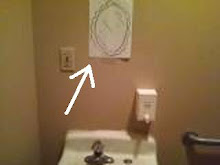
BY BELINDA M. PASCHAL
Since I began writing this column four years ago, countless readers have asked, “How do you come up with this stuff?” Well, in addition to having been blessed with a modicum of innate talent and what I suspect is a genetic predisposition toward insanity, I have experience and education on my side. I’ve spent years honing my craft (a work in progress) and I also hold a state-certified B.S. degree – not to be confused with a degree in B.S., which I also possess.
“I love to write, but I’m not very good at it,” many folks have lamented to me. Take heart, aspiring scribes, there IS help for you. Even if you’re not a natural-born writer, you CAN learn to be a better writer. Taking a cue from Frank L. Visco’s “How to Write Good,” I present “How to Write Even More Gooder.” By following these 20 handy hints, you’ll be on your way to more coherent scribbling in no time:
1. Prepositions should never be used to end sentences with. (That's why I always use a period after.)
2. Being a writer does NOT give you carte blanche to use foreign terms ad nauseam. This practice is gauche and makes you look like a humongous jerque.
3. Don’t be redundant. Use the fewest, smallest number of words possible to make your point and convey your message; otherwise you come across as repetitive, wordy, long-winded and repetitive.
4. Conversely, don’t use one-word sentences. Ever.
5. Or sentence fragments.
6. Profanity is used by &*%!$ with limited vocabularies.
7. There ain’t never no good excuse for using no double negatives.
8. Just between you and I, some writers could care less about misusing certain words and expressions, irregardless of how awful it sounds. A responsible writer takes the time to research how to use the bestest grammar possible.
9. One exclamation point is enough to express strong feelings!!!!!
10. Avoid repetition. There’s no need to say the same thing over and over.
11. Clichés are for the birds and often stick out like a sore thumb. Instead, try to think outside the box.
12. Its important to use apostrophe’s properly.
13. Also, please, do not, get carried away, with the commas.
14. Same goes for the overuse of quotes by famous people. Quotation confesses inferiority – or so Ralph Waldo Emerson, American essayist, philosopher and poet (1803-1882), said.
15. Employing bad analogies is as terrible as when you get a letter from some non-profit organization asking for donations and you don’t send them any, but you still use the little return-address labels that they sent as a gift.
16. Talented though they may be, dangling participles make even the most brilliant writers sound like idiots.
17. Using big, fancy words when more plebian locution would suffice makes your writing abstruse and superciliously magniloquent.
18. If something was mentioned previously, to do so again is repetitious.
19. Proofread thoroughly to see if you any words out, as well as to to be certain you didn’t repeat any. And don’t forgit to use spell-check.
20. And speaking of proofreading … it’s also a good way to make sure there are no unfinished


1 comment:
I cunker!!!! Oh...
Sal
Post a Comment